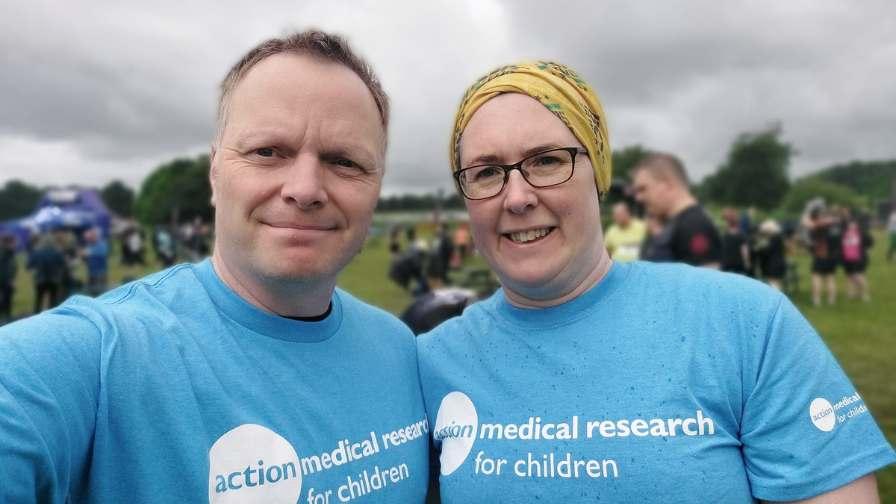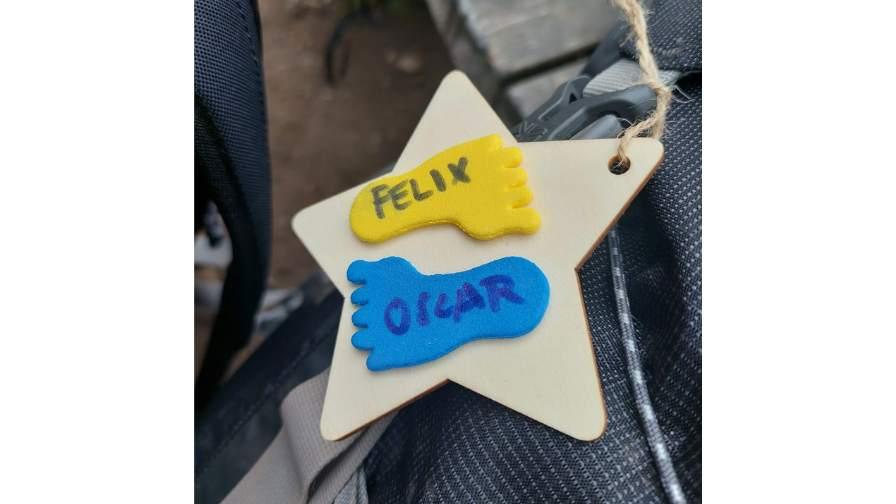Today is World Prematurity Day and would have been Oscar and Felix’s 10th birthday. Tragically Oscar died in the womb at 27 weeks from a heart defect and Felix passed away at just five days old after developing necrotising enterocolitis (NEC), a serious bowel condition that mainly affects babies who are born too soon. To commemorate what would have been Oscar and Felix’s 10th birthday, Phil and Liz have completed 10 gruelling challenges to raise much-needed funds for three charities: Action Medical Research, Tiny Tickers and Footprints Baby Loss.
Liz says: “When we found out we were expecting twins, I wasn’t concerned as my two older children were born at full term with no problems. However at our 20-week scan we were told that something wasn’t right with Oscar’s heart, they said that his heart wouldn’t survive the pregnancy. Seeing Oscar slowly fade away at every scan until he passed away at 27 weeks was unbearable. The only thing that kept us going was knowing that his brother, Felix, was healthy.”

Liz carried Oscar with Felix until 33 weeks when Felix was born, weighing just 4lb 6oz. He was breathing on his own, feeding well and was healthy. A few days after he was born, Felix developed NEC, a condition that mainly affects premature babies and which causes the bowel to die. He didn’t respond to treatment and had to be resuscitated twice which was devastating to watch. Liz says: “Even though the thought of losing Felix after losing Oscar was unbearable, we asked the doctors to stop the third attempt at resuscitation as Felix was so tiny, so precious and vulnerable, we couldn’t let him suffer any longer.”
Phil and Liz’s story is not unusual. Today more than 55,000 babies are born prematurely each year and tragically 1,000 premature babies lose their lives each year. Although there have been many advances in medicine, there are few treatments to prevent premature birth or reduce the risk.

Action Medical Research has been funding research into premature birth and pregnancy complications for many years. The charity is currently funding a project at King’s College London, which is investigating whether a new treatment can help prevent spontaneous preterm birth. The lead researcher, Professor Rachel Tribe says: “I have been researching the causes of preterm birth for over 20 years. I understand the effect it has on families as I was a preterm baby. Our research builds on a previous project which showed that special cells in the lining of the womb, human decidual stromal cells (hDSCs), help to control inflammation, which is important as inflammation and infection can trigger premature birth.”
The researchers will test whether this cell therapy can delay delivery and improve fetal survival in other laboratory models of preterm birth. They will also examine the effects of hDSC treatment on inflammation in the mother and baby and refine the best dosage and timing of treatment to maximise its effectiveness at preventing preterm birth.
Dr Caroline Johnston, Senior Research Manager at Action Medical Research, says: “Premature birth is the single biggest cause of neonatal death in the UK but, despite this, it’s an underfunded area of research. Action Medical Research have funded vital research for over 50 years to help understand the causes of early labour and investigate new treatments that could prevent or delay early birth. This new project shows promise as it builds on the success of previous research and we look forward to seeing the results.”
Find out more about Action Medical Research’s fundraising appeal which is raising funds for premature birth research: www.action.org.uk/OscarAndFelix.
